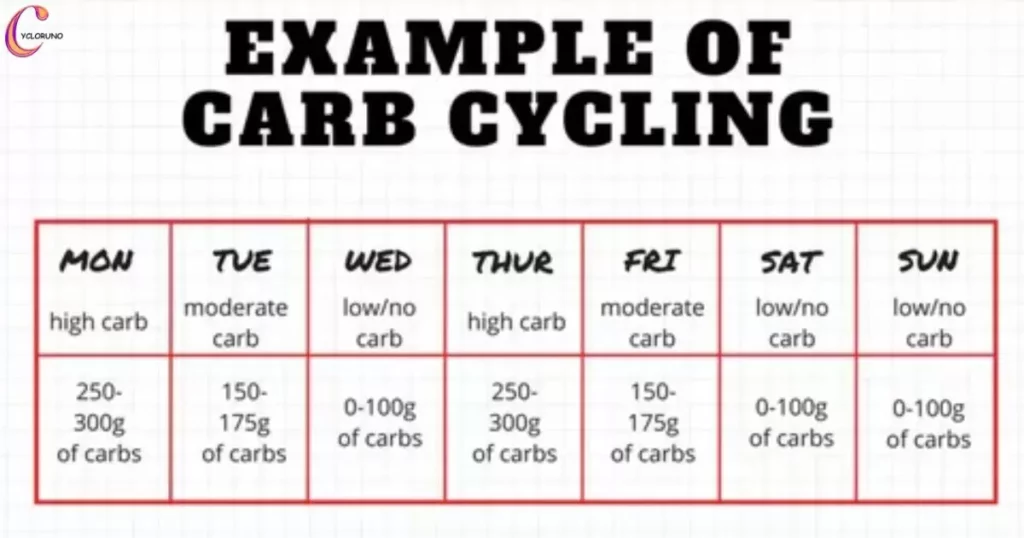Carbs per hour cycling refers to the amount of carbohydrates a cyclist consumes every hour during a ride. These carbs provide energy for muscles, helping to maintain performance. It’s like fueling a bike, the right amount helps the body pedal smoothly, allowing for a longer and enjoyable ride.
Ever wondered, how many carbs per hour cycling? Just like a bike needs the right fuel to keep rolling smoothly, cyclists require carbohydrates to keep their bodies moving during a ride. Discovering the ideal amount of carbs per hour cycling can make your biking adventure a smoother and more enjoyable journey.
Determines the amount of energy a cyclist needs during a ride. It’s like giving your bike enough fuel for a smooth ride. Cyclists usually aim for 30-60 grams of carbs per hour to keep their muscles energized and maintain performance, ensuring a fun and lasting cycling experience.
Optimal Carb Intake for Cycling Performance
Carbohydrates are the primary fuel for cyclists, essential for sustained energy during rides. Determining the optimal carb intake per hour while cycling can significantly impact performance. Studies suggest an intake of 30-60 grams of carbs per hour to maintain energy levels. Balancing the right type of carbs, like easily digestible ones found in gels or sports drinks, is crucial for sustained endurance.
Cyclists should consider their body weight, intensity of the ride, and individual metabolism when determining carb intake. zriders might find 30 grams sufficient, while larger cyclists might benefit from closer to 60 grams. Experimentation during training rides helps in finding the sweet spot for each individual’s performance.
Importance of Carbs in Hourly Cycling
In cycling, understanding how many carbs per hour cycling? is vital. Carbohydrates act as the body’s primary fuel source, crucial for sustained energy during rides, just like the importance of bidon in cycling for hydration. They power muscles, ensuring riders pedal smoothly.
Insufficient carb intake can lead to fatigue, hindering performance. By consuming the right amount of carbs per hour, cyclists maintain energy levels, enhance endurance, and enjoy longer, more enjoyable rides, making carbs a key element for successful cycling adventures.
Carbs Per Hour Strategies
| Factors Influencing Carb Intake | Recommendations (grams/hour) |
| Intensity of Ride | 30-60 |
| Rider’s Body Weight | Variable |
| Individual Metabolism | Varies |
Creating effective carb per hour strategies involves considering various factors. Intensity of the ride dictates the amount of energy expended, thereby influencing the required carb intake. Moreover, a rider’s body weight and metabolism impact how efficiently carbs are processed, affecting the ideal intake range.
Factors Influencing Carbohydrate Requirements
Several elements influence the amount of carbs a cyclist needs per hour. The duration and intensity of the ride play a pivotal role. Longer rides or high intensity sessions demand a higher carb intake to sustain energy levels. Additionally, individual differences such as metabolism and fitness level directly impact how efficiently carbs are utilized during cycling.
Factors like environmental conditions, altitude, and even the type of terrain can affect carb requirements. Climatic conditions like heat or cold may alter how the body utilizes carbs, necessitating adjustments in intake for optimal performance.
Science Behind Carbs and Cycling Efficiency

The science behind carbs and cycling efficiency is grounded in how the body utilizes different types of carbohydrates. Simple carbs, like glucose and fructose found in sports drinks or gels, provide a quick energy boost during rides. Meanwhile, complex carbs from sources like energy bars offer a sustained release of energy.
Cycling efficiency is linked to maintaining steady blood sugar levels through balanced carb intake, essential for a rider’s energy. This sustains energy output and delays muscle fatigue, contributing to better performance and endurance during prolonged rides, crucial in prioritizing cycling races for peak performance.
Carbs per Hour for Peak Performance
Striving for peak performance in cycling involves meticulous attention to carb intake per hour. Finding the right balance between intake and expenditure of carbs is critical. Cyclists aiming for peak performance often adopt a strategy of consuming 60 grams of easily digestible carbs per hour during intense rides to maintain energy levels.
The aim is not just to fuel the immediate ride but also to ensure sufficient stores for continued performance. Adequate carb intake throughout the ride leads to better recovery and readiness for subsequent cycling sessions. Balancing carb intake with hydration further enhances overall performance.
FAQ’s
How much should I eat during cycling to keep going?
Aim for 30-60 grams of carbs per hour to sustain energy. Experiment to find what works best for your body.
Does everyone need the same amount of carbs while cycling?
No, it varies. Smaller riders might do well with 30 grams, while larger cyclists may need closer to 60 grams.
Why are carbs so important for cyclists?
Carbs fuel your muscles during rides, preventing fatigue and helping maintain performance.
Can I rely only on water during cycling?
Water is crucial, but carbs are essential for sustaining energy. Consider sports drinks or snacks for carb intake.
How can I figure out my carb needs for cycling?
Factors like ride intensity, body weight, and metabolism influence your carb requirements. Experimentation during training helps find the right balance.
Conclusion
In the world of cycling, understanding, how many carbs per hour cycling? holds immense importance. Carbohydrates act as the powerhouse for your body during rides. As you pedal, these carbs fuel your muscles, keeping you going smoothly. Finding the right balance in your carb intake per hour can significantly impact your cycling performance. Remember, it’s not just about eating any carbs but about consuming the right amount to keep your energy levels steady.
By aiming for an intake between 30 to 60 grams of carbs per hour, you give your body the necessary fuel to endure long rides. Experimentation is key, each person’s needs may differ based on body size, ride intensity, and metabolism. Finding what works best for you through trial and error during training rides is essential.
Ultimately, ensuring a steady supply of carbohydrates during cycling is like keeping your bike well fueled for a smooth and enjoyable ride. It’s about sustaining your energy levels, preventing fatigue, and maximizing your cycling performance. So, fuel up wisely, and pedal your way to a fantastic cycling adventure.








